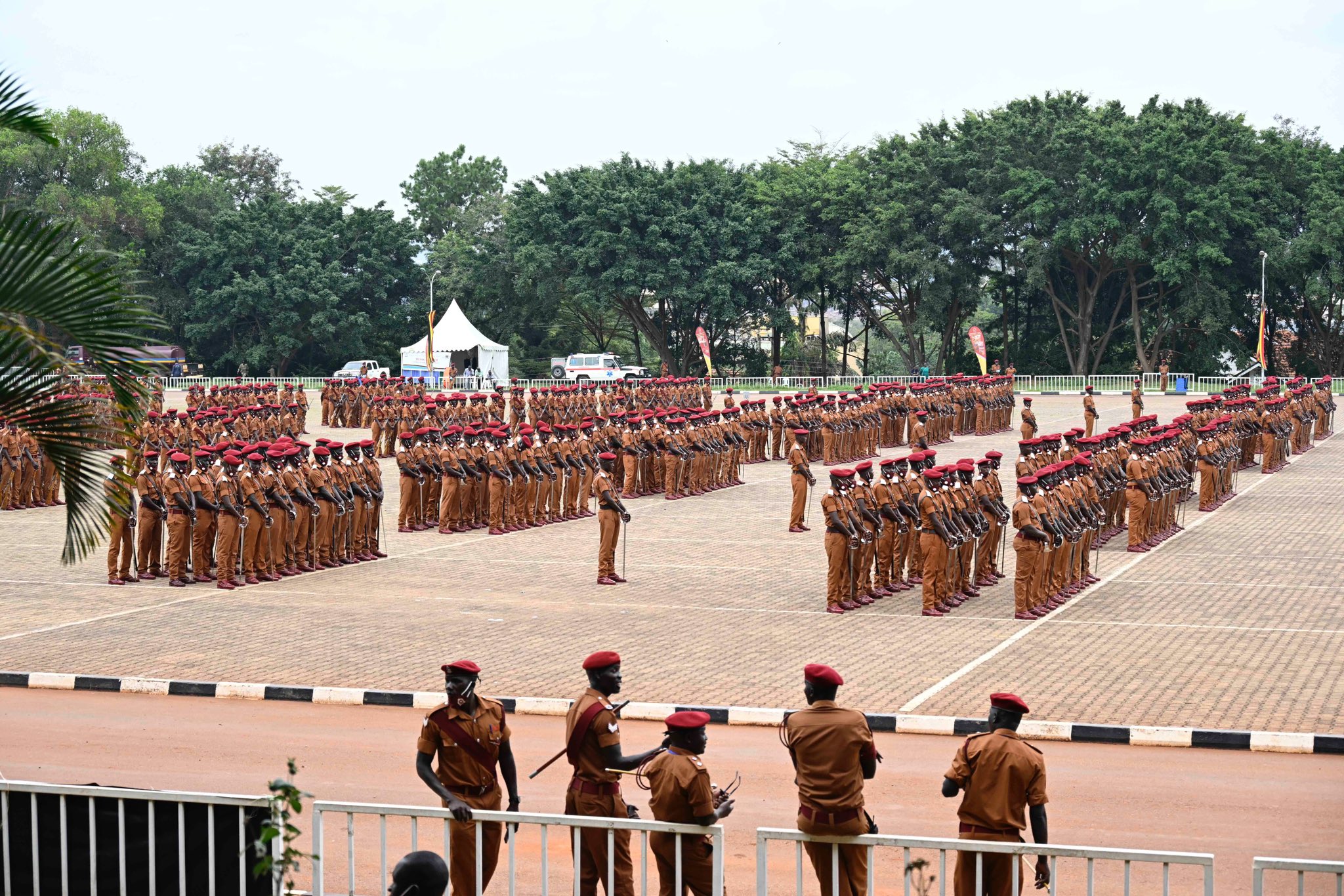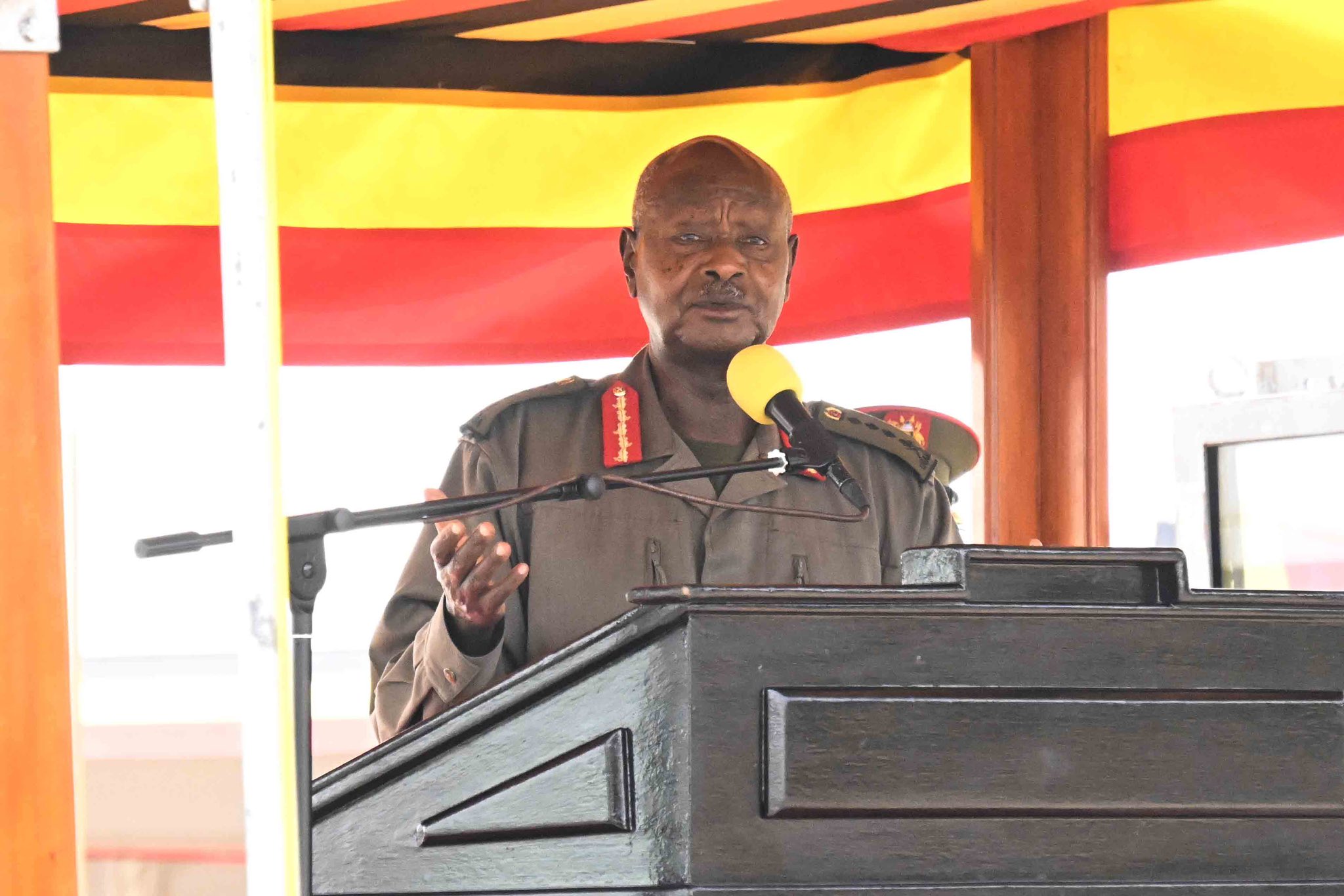President Yoweri Museveni recently presided over the graduation ceremony of 2,234 prison officers who successfully completed an 18-month training program in Uganda.
This new group of officers includes 200 cadet assistant superintendents, 318 principal officers, and 1,716 recruit wardens, increasing the total number of prison officers in the country to 14,248.
This surge in personnel has improved the prison officer-to-inmate ratio, reducing it from one officer for every eight inmates to one for every six, although it still falls short of the United Nations’ recommended ratio of one officer to three inmates.
During the ceremony, President Museveni commended the Uganda Prison Service (UPS) for its commitment to internal peace, security, rehabilitation programs, and poverty alleviation initiatives through agriculture.

He noted that nine of the newly commissioned officers have engineering qualifications and encouraged UPS to leverage their skills to construct additional prison facilities, addressing overcrowding. He also emphasized the need for scientific expertise to be duly recognized and urged the Commissioner General to lead in this regard.
“Why don’t you use engineers that you have to build your own barracks and offices so that the only expenditure is on materials? When you involve the private sector, many of them don’t have their own money and borrow from banks which charge them 18% or 20% and if the cost of the project was to be 10million, it now becomes 12 million because of the bank loan that the contractor has borrowed. Then these private companies want big profits and that’s another 2million to make it 14 million and when you add VAT, you find that a project which was 10 million goes to 18 million.” he said
In addition to these developments, President Museveni pledged financial support for UPS projects in agriculture and manufacturing, with an emphasis on using locally sourced raw materials for uniform production. He stressed the importance of self-sufficiency in materials, except for silk.
Furthermore, the President announced additional security measures, including fingerprint marking of firearms and the installation of digital number plates, aimed at enhancing security and reducing criminal activities.
” I’m insisting on the issue of electronic number plates; It will be a very big blow to crime because most of the people move to and from the scene of crime by either a vehicle or a boda boda,” said President
Adding that: “They( database) can be kept separately , maybe under military police but every gun must be fingerprinted,”
President Museveni has outlined four key tasks for the Prisons institution, emphasizing the need for them to reform prisoner by rehabilitating and transforming individuals who are incarcerated, aiming to reintegrate them into society as responsible and law-abiding citizens.
Provide skills training for educational and vocational programs to equip inmates with new skills, ensuring they have improved prospects and opportunities upon their release .Administer appropriate punishment to uphold the law by implementing sentences in accordance with the legal system and regulations and contributing to wealth creation.
Furthermore, he said it is crucial that the Prisons institution actively combats corruption, as any corrupt practices within the system not only tarnish its reputation but also waste valuable public resources.
Johnson Byabashaijja, the Commissioner General of UPS, highlighted the significant increase in the number of officers over the past five years and discussed efforts to reduce prison overcrowding through engineering projects. He also mentioned UPS’s acquisition of land for agricultural initiatives but noted a shortage of machinery as a challenge.




